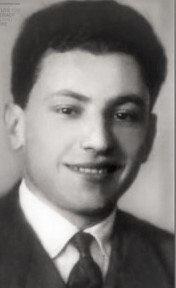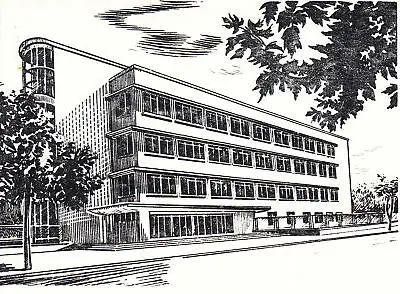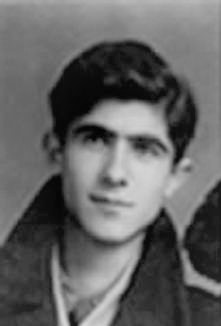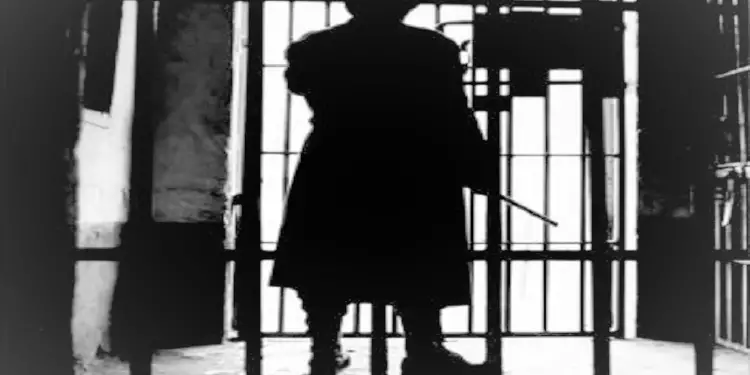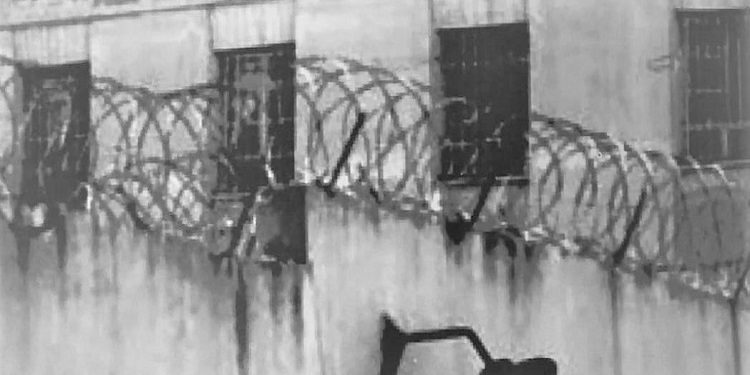From Skifter Kelliçi
Second part
Memorie.al / It were the morning of May 20, 1994, when I entered the office of Skënder Buçpapaj, then General Director of Albanian Radio and Television. And not without purpose. I reminded him that, on May 28, it was 15 years since the shooting of Fadil Kokomani and Vangjel Lezho, two of the best journalists of Radio – Tirana, since its creation, as well as Xhelal Koprencka, another political prisoner, who was shot together with them. I added that, after the fall of the dictatorship, it was the occasion for this anniversary to be commemorated with a special ceremony.
Fadil Kokomani did not stop. He added that, in a country like Albania where a dictatorship ruled, life would become even more difficult, because the country was turning into a big prison. But in the Soviet Union, after Stalin’s death, things were going quite differently.
And all this, he was pronouncing with conviction, when relations with the Soviet Union were still very good, when six months ago, in June 1959, Khrushchev had visited Albania and was received like a god by Enver Hoxha himself. .
The truth is that, immediately after the departure of the Anglo-American missions from our country, in 1946, my father and uncle were disappointed. Both of them, as well as many, many others, had expected Albania to have relations with both the West and the East.
In addition, for it to have a democratic government, resulting from free, pluralistic elections. But from now on, our country was getting attached to the Yugoslav empire, only to fall completely under the Russian communist sphere.
This was especially felt even more by my uncle, Reshat Këlliçi, who, together with such well-known figures as: Sejfulla Malëshova, Tajar Zavalani, Llazar Fundo, etc., after the return of Zog, who had overthrown the government headed by Fan Noli, were forced to leave Albania to settle in the Soviet Union.
My uncle, who had also finished his higher studies there, had lived a difficult life and had returned to his homeland, disappointed by this country where… Stalinist socialism was being built; he had experienced, among other things, the terrible violence that was exerted on the Soviet people, with the so-called class war, with the persecutions by the KGB (Soviet Security), imprisonments, and deportations and about these even in my presence, although I was still small, he had often talked with my father.
Not only that, during those years spent in Moscow, he had married a Russian woman. When he finally left the Soviet Union, in 1934, he left behind a four-year-old boy with great pain, hoping that one day he would see him again.
And this day came. Selim Shpuza, his friend from his student years in Russia, in 1945, was appointed the first ambassador of Albania in this country. Then the uncle ordered him to do everything possible to find his ex-wife and son, who should have been 14 years old.
And Selim Shpuza had promised. But in vain. Despite his efforts, the state authorities and the KGB … had not been able to find the whereabouts of his ex-wife, along with their son.
What a drama…! Surely both, mother and son had ended up in some lost Siberian city, or worse, in some concentration camp. But why? Maybe because she was married to an Albanian immigrant who had then left the Soviet Union…?
I don’t forget that day, at the end of 1946, when the Anglo-American missions were finally leaving Albania, my uncle said this: “Now in Albania, what I have seen for almost nine years in Russia will happen. Even more violence, oppression, misery. All in the name of communist ideals”.
From then on, our family and relatives began to hate the Soviet Union and Stalin, who, with his big mustache, seemed so old-fashioned to me then.
However, as is known, after the death of Stalin and the coming to power of Khrushchev, in this country, a new course began, which rejected the individual cult of Stalin and under the banner of peaceful coexistence, the disappearance of the cold war, the improvement of relations friendly with other Western countries, especially with the USA and Great Britain, the mitigation of the class war, the rehabilitation of thousands of people convicted by the Stalinist dictatorship, etc.
Then my uncle with my father and other relatives, we started to see these changes taking place in the Soviet Union, hoping that Enver Hoxha would follow the same example. But, unfortunately, this did not happen…!
That’s why, a few weeks after the conversation we had during physical work in February 1960, and during other days, I remembered Fadil Kokoman, what my uncle had told me about his life and the horrors he had seen in that place.
– About such tragic events, – Fadili told me, when we were walking one day in the big Park, – my friends, Soviet students, have spoken to me quite often. But in Albania, it will happen even worse than what is happening now. Maybe it will happen that we break up with the Soviet Union and remain isolated from the rest of the world.
In those days and afterwards, I was overwhelmed by a deep sense of pride: a journalist, who was five years older than me (he was 27 and I was 22), moreover even more skilled than me, had opened up to me so much obviously.
That’s how I was opening up to him. And in that world, I began to love even more what I had valued as a teacher in the field of journalism. Since then, also between me, and then Vangjeli, there were no secrets about political matters. Then what Fadili had predicted happened…!
Difficult times…!
In December 1961, for the sake of truth, relations between the Soviet Union and Albania were broken on Khrushchev’s initiative. This is precisely what Fadili had foreseen. Among other things, Soviet women married to Albanian men began to leave. Among them, Vangjel Lezho’s wife also left.
Fadili, who had been to the Soviet Union for the last time in September 1960, had already lost all hope that he would go back to that country, where he had studied for four years and where he also had a love affair with a girl Estonian.
Meanwhile, the situation in Radio-Tirana, like in any press, started to become honest. In Radio, this was even more aggravated by the director, Thanas Nano, who had already turned into an impatient censor. Shows were criticized, allegedly with a liberal spirit. Among them are Fadili’s shows.
This happened exactly at the time when he had become a communist and, thus, had to react, make self-criticism. Not only that, but he no longer had to show any sign of influence from Western culture, nor in his clothes, which stood out to him, nor to listen to Italian music. Moreover, he should not speak in the office, not even Russian.
One day, the party secretary on the Radio even scolded him and I for speaking in this language, pointing out that this was the language of… Khrushchev. And Fadili, did not hesitate to pluck his eyelash without flinching, that this language was also Pushkin’s and Lenin’s. The secretary, after this thorough explanation, did not panic.
During the conversations I had, Fadili called Albania’s connection with Mao Zedong’s China another adventure that Enver Hoxha undertook to ultimately save himself and the Politburo, which was following him blindly.
Once, he reminded me of a really funny incident that happened in 1957, the last year of his studies in Leningrad:
“A Chinese student, who seems to be an ardent patriot, convinced his friends with whom he lived in our dormitory to buy a tractor with their savings and thus help Chinese agriculture. And his friends, out of trouble, obeyed this cracker head.
I saw these poor Chinese, every day in our canteen, eating soup with cabbage and no meat. I noticed that we ate there, and it must be said that the food, especially for the foreign students, was good, until their mouths were watering. This happened every lunch and dinner. And so, once they really bought the tractor.
Of course, we and our fellow students from Russia and other countries, from the East and the West, did not blow the gas, because of this we made a fool of ourselves, even more so when we saw that, from Moscow to Leningrad, embassy employees came, who to greet these students, for this so rare patriotic act, in aid of the agriculture of their country. So, with this country full of such dogmatic crackheads, who worship Mao Zedong as a god, we will be connected”, – concluded Fadili sadly.
Thus came the end of December 1962. Those were the days when rehearsals were being made for the First Song Festival at Radio Tirana, the idea of which development, apart from the composers Abdulla Grimci and Vath Çangu, who worked at the Radio, had also been given by Fadili. He, as a connoisseur of music, was even appointed to participate in the jury of this festival.
But something unexpected happened. Exactly, on the first night, Fadili was not seen in the hall of the Opera and Ballet Theater (today the hall of the Academy of Fine Arts). He came to the office the next morning, with the excuse that he was suddenly ill.
Reasoning that was accepted, even more so when it came to a journalist already with personality, in our press. (Only after the arrest and the investigative process, the truth came out. That night, Fadili with Vangjeli and other friends tried to escape from the Buna River, but could not).
Of these intentions of his, in spite of the great confidence I had in him, I could not understand anything. Fadili never opened up to me about this goal, nor about the activity had he started with other friends. He couldn’t trust me with such an important secret. I was still new to him.
I knew that his close friends, apart from Vangjeli, were Robert Vullkani, who had also finished his journalism studies in the Soviet Union with them, the military poet Trifon Xhagjika, Stavri Rafaeli, a well-known singer and painter at the Opera and Ballet Theater, his military brother, Thomai, and several others.
Everything would clear up later. Arrest after an escape attempt. In the first months of 1963, across the walls of some streets of Tirana, tracts were seen pasted with this content:
“Citizens! Do not trust our dogmatic leaders. They are leading the country to disaster. Hoxha and Shehu have lost all sense of humanitarianism. Democracy is buried. Our time will come. Every honest citizen, let him be ready. We are not alone. Freedom to political prisoners! Long live the truth! Illegal Committee for National Salvation”.
To tell you the truth, I myself did not manage to see any such tracts, because they were instantly disappeared by the trusted people of the State Security. But this event caused a stir and was naturally talked about quietly for weeks.
On one of the first Sundays of July 1963, a Radio journalist, on the occasion of his marriage, invited us, the friends of the culture editorial office, to his house for a celebration. I was impressed that Fadili and Vangjeli were absent. It was a not very justified absence, but still, the next day I didn’t find it reasonable to ask Fadil. But I didn’t even have time because, immediately, very shocking news hit us like a bomb. In an attempt to escape from Lake Pogradec, a group was caught, including… Vangjel Lezho!
It did not occur to me that even Fadili could have been involved in this very dangerous endeavor. So, taking advantage of the trust he had given me in conversations, already very sharp, one afternoon, when I happened to be on the balcony of the office, alone with him, I asked him about this very complicated matter.
He replied that he didn’t know anything exact. He even added that the secretary of the Radio party called him to a conversation and told him to reflect on this event, judging that Vangjelin was his closest friend.
“I explained to the Party secretary that Vangjeli has never informed me about his intention,” Fadili told me. Three weeks passed like this, during which he seemed calm, as if nothing had happened. But other surprises would happen on August 6. It was a Monday and according to the schedule, the administration was working even in the afternoon.
I don’t know why, but Fadili seemed more alive that afternoon than other times. As usual, he showed us the barsoleta, which he accompanied with gestures, as if he were an actor. At eight o’clock in the evening, we left work and went down from the fourth floor of the Radio tower, to go each to his house. But on his way out, the security guard, who was usually an officer of the Ministry of the Interior, called him into his office. And Fadili, as he greeted us, did so.
Nothing bad occurred to us. But the next day, when we hadn’t even started work two hours, the head of our editorial office came to our office and told us very strictly these words: “As you know, Vangjeli was arrested a few weeks ago. Fadili was also arrested last night”.
I could hardly contain a cry, which did not a typist, who almost screamed, hearing those terrible words. “Rest,” the boss scolded. – Don’t feel sorry for this enemy”?
Fadili enemy?! Whose…?! He, the talented journalist, who had spoken to me so often about democracy, which our people lacked? But precisely, he was already an “enemy of the people”, that is, of the state that protected not the people, but the dictatorship.
On that day, and afterwards, an honorable situation was created in the Radio premises. Within three weeks, two journalists, two friends, two close friends of mine, but also of others, were arrested. Among them, Pirro Naçe, as I mentioned above, one of the most talented journalists of Radio Tirana, whom Fadili highly valued.
Because the director of Radio-Tirana, Thanas Nano, continued to create an increasingly suffocating atmosphere for creators, he was forced to move to the magazine “Ylli” in 1961. But, nevertheless, he continued to maintain his friendship with Fadil.
And it must be said that, in those days, Thanas went from ear to ear…! For him, he had gotten rid of a man who had always despised him with his skills and the values of his creations that had become known to listeners and readers.
During those days, almost everyone could barely contain themselves from what had happened. Above all, these arrests reminded them of the arrest of Vehip Demi, also a journalist at Radio Tirana, convicted after the events of the Tirana Conference in 1956 and then, died of physical and spiritual torture, in exile.
Let’s go back to the editor-in-chief. After informing us of Fadil’s arrest, he ordered me to deal with the show he had started writing, which was to be broadcast the next day. Oh god, how could I write, when my hands were shaking…?! But there was one thing that I had to do.
I opened Fadili’s drawer and on a white sheet, these words immediately caught my eye, written in the characteristic letters of his clear writing: “…Tonight, on the show “Popular University of Radio”, continuing the cycle… will listen to a conversation dedicated to the famous French painter, Nicolas Poussin…”!
In those moments, he seemed to be addressing me: “Keep writing my friend, finish this show that I just created, because we don’t know when we will see each other…! Maybe never…”! My eyes almost filled with tears…!
I was then also engulfed by a terrible feeling of fear: maybe Fadili and Vangjeli, during the investigative process, would confess to the investigators that they had conversations with me, in which we had together vomited bile, against the Labor Party and the dictator Enver Hoxha, (which I have mentioned above) and so they would arrest me as an enemy?
Every time I saw a “GAZ 69” on the streets where I passed, I remembered that it would stop and that the Security forces inside it would come out like shadows to arrest me.
I was in this state of anxiety until the day the court proceedings against them began. Only then did I calm down. Fadili and Vangjeli, as far as could be seen, had shown themselves to be men, just as they showed themselves afterwards and had not confessed anything to the investigators about the conversations they had had with me for years, against the communist dictatorship. Memorie.al
The next issue follows





